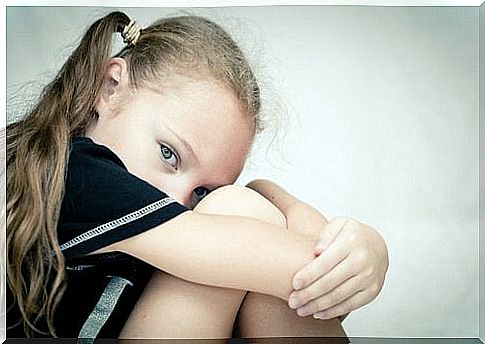5 Characteristics Of Psychopathy In Children

The consequences of psychopathy in children are manifold. Disturbed relationships with their environment are clearly recognizable. Dealing with children can then be very difficult.
A psychopathy first of all describes a certain behavior. It arises from a disturbance of the psyche or personality.
A psychopath is fully developed mentally and physically. What he lacks, however, is the ability to adapt appropriately to the environment.
The word “psychopath” sounds shocking. We think of adults rather than children. But psychopathy in children does occur. Most psychopathic adults have shown signs of this even as children.
One thing needs to be emphasized at this point. A psychopath doesn’t always fit our idea of it. Many of us think of characters as we know them from films. But the person doesn’t have to be crazy, violent or criminal.
It can simply be someone who, for example, suffers from an extreme lack of compassion.
5 characteristics of psychopathy in children
How can you recognize a child with psychopathic traits? Children who suffer from it often have the following problems:
- Psychopathic children are very selfish. It is incredibly difficult for them to share and they are extremely demanding towards their parents.
- They often disregard instructions. If they follow, it is mostly because of threats. And that doesn’t always help either.
- Children with psychopathic tendencies hardly show any feelings. And that although children are often still very open in their feelings. If children never show any visible reactions to their environment, it can be a sign of a personality disorder.
- You cannot put yourself in other people’s shoes. The feelings of others are neither recognizable nor understandable for them. In addition, they generally find it difficult to maintain contact with others.
- You are very insensitive. Repentance or guilt are unknown to them. Apologizing after wrongdoing is also alien to them. This can be expressed in physical or verbal aggression.
Strong rebellious traits can be seen in young people. With this comes a tendency to break rules. Both are strong pointers.
The ingestion of harmful substances is often one of them. This can be alcohol, drugs and tobacco.
But here you have to look carefully. This behavior may or may not be indicative of psychopathic traits.

Diagnosis of psychopathy in children
Some of the features mentioned could indicate psychopathy. But psychopathic traits show up over a long period of time.
The first signs show at the age of 5. Then a child begins to expand their social circle.
In a healthy child, these patterns quickly subside. The simple reason is that in dealing with others it learns the norms of social interaction.
According to experts, punishment is not a good way to achieve this.
This learning and adaptation process does not take place in children with psychopathy. The main cause is that they don’t feel guilt or remorse after wrongdoing.
Their aggressiveness prevents them from empathizing with another person’s pain. They also have no compassion to express. Friends and family are no exception.
Let’s remember: violence doesn’t always have to be physical. There is also psychological and verbal violence.
Modern technology allows us to study the brain more closely. For example, reactions of the brain to stimuli can be measured. We can also learn more about mental illness through computed tomography.
What are the causes of psychopathy in children?
A psychopathic disorder has no single cause. This applies to almost all mental illnesses. Rather, there is a group of factors. We have listed the following.
There are 3 types of causes:
- Genetic factors: Children whose parents, grandparents or other close relatives already have psychopathic traits themselves are more likely to do so. This also applies to twins.
- Biological factors: Damage or a disturbance to the brain can also be the cause. A weak connection between the tonsil core (responsible for regulating feelings) and the frontal lobe can also be the cause.
- Psychological factors: Psychopathic behavior can also have other causes. An external influence through violence or abuse can be detrimental to the development of the personality in the long term.

Advice on treatment
Therapy is always arduous. Especially when patients do not enter into open discussions. And a therapist is first and foremost a stranger. This makes the treatment even more difficult. Therefore, a lot of time has to be planned for a treatment.
But a stay can also work. A good facility with capable teams is worth a try. The teams should consist of experts from different disciplines.
The latter is very important. Because a person who cares for a patient must also take care of himself. And we as parents also have to take care of ourselves. This is why professional help is almost always a good option.









